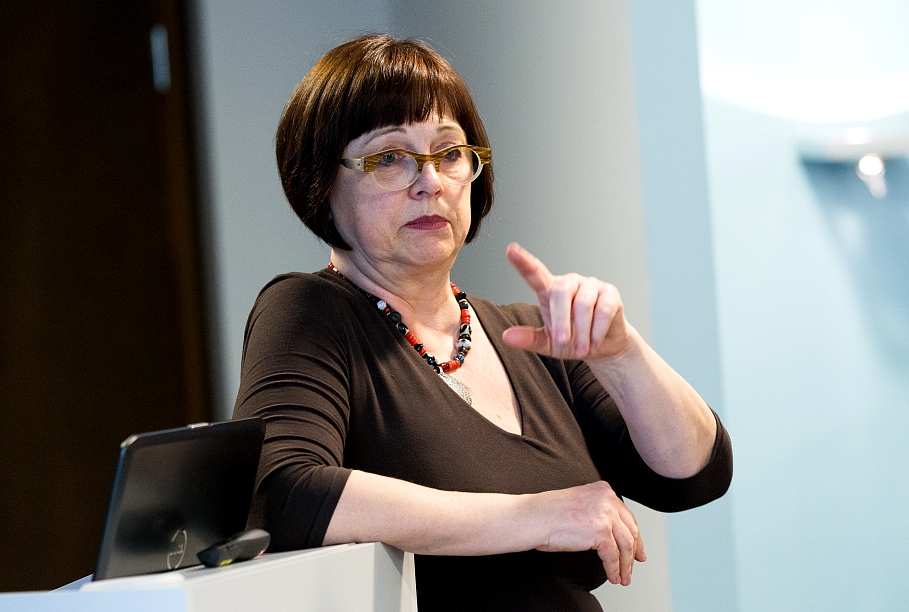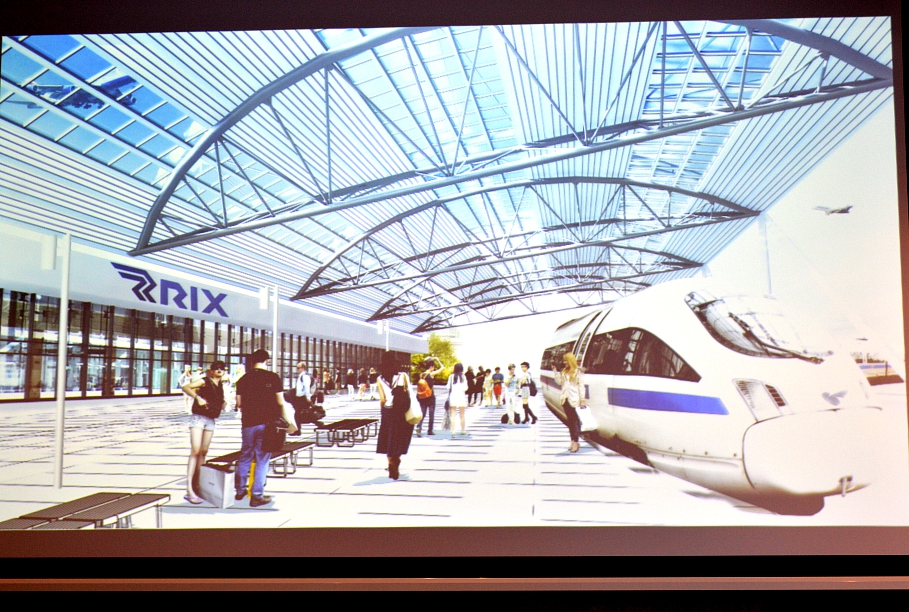It should all have ended on Friday – a historic agreement should have been signed between nine institutions of the three Baltic States, making a wide stride towards building 'Rail Baltica', a new railway across three countries, from the north to the south.
But as news on Monday morning say, the agreement on funding and implementing the huge project is still in the process of being signed. However if a public showcase is scheduled for mid-week, it should be alright and this minor setback will be explained away with tiny technical mishaps.
The agreement is very significant, as it will finally establish the principles over who and in what way will carry out procurement; who'll be responsible for what; and what the main criteria of selecting applicants will be. It's obvious that the distribution of the almost €3.6b, of which Latvia alone will have €1.27b, is more than a just an alluring prospect that will feed the finances of many a company and entrepreneur for years to come.
But the largest setback for locals could be that they have no experience in these buildings, and international companies won't find this project to be small and uninteresting. That's why the competition will be stiff.
The desire to protect "our people" was at the root of the recent argument between Lithuanian representatives and the joint venture RB Rail board chairwoman Baiba Rubesa. Lithuanians were accused of delaying the project.
However they did not hide that hey want control in local procurement as it would give a better starting point for Lithuania's entrepreneurs. The public bickering went as far as to jeopardize the execution of the Rail Baltica project.
And here we must say – if the Baltics cannot agree and carry out the project, no one else and nowhere, and that includes the hallways of European officials, will cry about it, as other European countries have many infrastructure projects eagerly lined up for support and the chance to be implemented.
In other words, if we won't have it, others will! And we'll be the ones biting our own fingers for allowing an opportunity to slip by.
However the Lithuanians are not the root of all evil. There's talk about the weakness of the RB Rail joint venture, which has caused it so that not just one but nine companies are putting the the railway project into effect. I.e., the states awaited much more activity on the part of the joint venture and, having failed to see it, started moving ahead on their own.

Hopefully, what Baiba Rubesa recently said will come true – that the apparatus headed by her will be strengthened and it will become clear at last who's leading the project and why it was sensible to create the joint venture.
Furthermore, Lithuanians can't be chided for protecting their national interests. All the more so if you admit that Latvians and Estonians have these as well, just more understated. Judging by the experience of the last few years, it's clear that there'll be a wish to sort things out without extra publicity.
And again we can simply hope that Rubesa will be strong enough not to involve herself and come down on those too brazen and thinking not about their national interests but rather their own pockets.
A decade of projects and construction lies ahead, and afterwards, who knows, perhaps we'll be able to sit in a comfortable train wagon and quickly visit our neighbors, for example, Tallinn or Kaunas, or perhaps farther - Berlin as in former times or later on Venice herself (if it hasn't sunk by the time).
However amid bickering over who gets the lion's share, and during the great reconstructions and compensations for land, to be crossed by the narrow European gauge tracks, I'd like to hope that several of the things that the project can give us all won't be forgotten.
First of all – jobs and GDP growth. The building of the railway, the reconstruction of the Rīga Station, building new infrastructure to reach the airport, as well as making projects and carrying out construction – all of this will create jobs and jump-start the economy, as it simply can't be otherwise if so much money flows into it.
It will give us an opportunity to make our life more prosperous. However, construction can bring out the problems dormant in the economy – the lack of laborers. That is, we can't be sure if there'll be enough specialists and workers of our own.
The outflow of labor force in the last years has been dramatic, and politicians might have to ease immigration criteria to bring enough helping hands here.
Secondly, economic security. Along with talks about energy security and independence from Russian gas, we can talk of a sort of an infrastructure independence as concerns Rail Baltica. No, we don't have to dismantle the railway to Russia just because the political relations with that country have soured. However we mustn't forget that Latvia's dependence on Russia in the transit industry is very large and the decrease in ports is mostly made up from the decrease of Russian freight.
Of course, all Latvian ports can continue to hope for Russian and Chinese freight, which, according to several politicians, are about to flood over Latvia. Hopefully that will happen.
However a railway - independent from the eastern-western axis - going from the north of Europe to the south will not get in the way of the future economy. Who knows, perhaps the railway will in fact change it.
Lastly, opportunities. Entrepreneurs with ties to Russian business don't see the opportunities of Rail Baltica and keep on saying that the project is financially unsound. Well, what can we say - it's their problem. Of course the trump card is in their hands.
Because at the moment it's difficult or practically impossible to prove whether the project will be profitable, and it's because no one of us knows how the region's economy will develop within the next five, ten or twenty years.
And if someone does in fact say he knows it, he's lying.
Currently economists will be able to calculate the mid-term benefits brought by the construction of the railway, as the costs and the work involved are known. The rest depends on how Baltic entrepreneurs will use this infrastructure - almost completely built from the coffers of taxpayers of all Europe - in their favor. It'll be in the hands of the entrepreneurs themselves and depend on a number of circumstances that will arise in the next few years in the Baltics and abroad.
Ten years ago the Baltic Sea region was viewed as one of the fastest-growing and most stable in the world. Sadly much else has changed along with Russia's policies.
Where will the geopolitical whirlwinds will blow? Will emigres return to Latvia and Lithuania? How will the Nordic countries develop? How pronounced will be the interest of other European states to cooperate economically? What changes will the potential free trade agreement between the US and Europe bring? What interest will China have in this region? These questions currently have no answer.
However it must be said that Finnish entrepreneurs are already interested in the course of this project. They think it's very profitable to ship freight to Estonia and then move it practically across the whole Europe.
I hope that there are entrepreneurs in Latvia who'll see and carry out their projects and that Rail Baltica will bring benefits not only by way of construction but also active use in the future.































